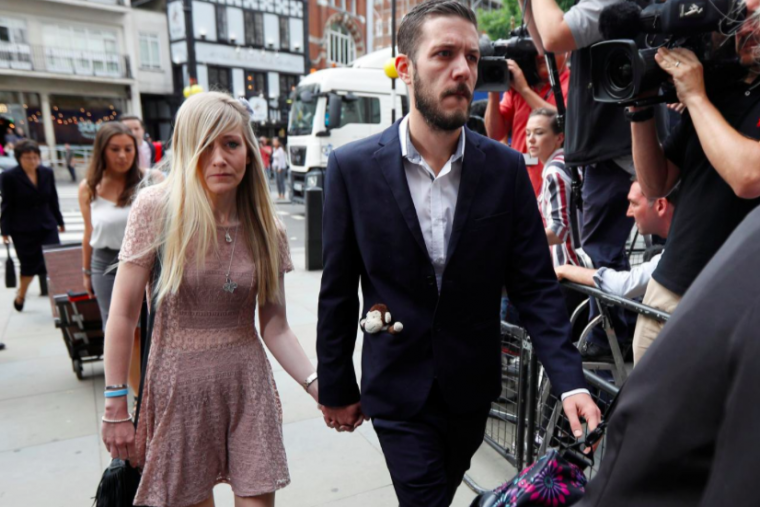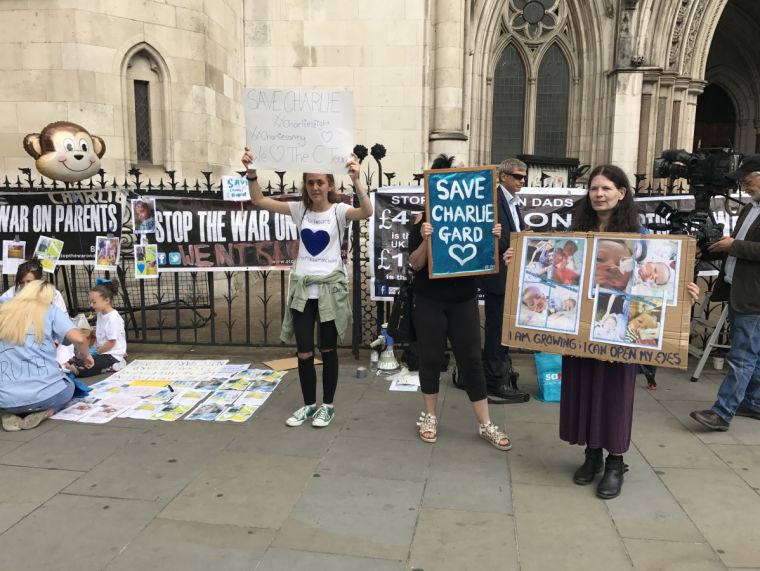Charlie Gard: Emotion has trumped trust in today's society, but parents and professionals can work together

The tragic case of Charlie Gard, and the desperate efforts of his parents Connie Yates and Chris Gard to do everything to give him a chance of life, have gripped the national and international media. The case raises profound and troubling questions about the power of medical technology, the duties and responsibilities of doctors and parents, and the role of the law courts, as well as the impact of global media coverage and social media campaigns.
As a paediatrician who has spent a lifetime caring for desperately sick and vulnerable newborn babies, I have spent many hours in painful and emotionally fraught discussions with grieving parents. Would it be the right thing, the most loving response, to switch off life-support machinery and 'allow nature to take its course'? Or should we continue to use sophisticated invasive technology to keep the baby alive, despite the apparent hopelessness of the situation? Just because we are capable of extending life indefinitely, is this the right thing to do?
Nearly all the dilemmas of medical ethics start with human pain. They start with human beings who grieve, suffer, bleed and struggle. And our first response has to be one of empathy. Whether we are professionals or spectators we have to try to enter into the pain – to recognise and acknowledge the distress and desolation of parents who weep and struggle and pray for healing for their child.
Paediatricians, ethicists and legal experts are all agreed that the best approach to these profound dilemmas is one of collaboration. The health professionals and the parents need to develop a deep and effective partnership in which together they can work out what is best for the child. Both the law and professional guidelines agree that it is the best interests of the child which must guide all decision-making. But, of course, in cases such as Charlie's there may be deep-seated and passionate disagreements about what is best.
Collaboration depends on trust and mutual respect. A helpful concept is the 'expert-expert' relationship. Health professionals are experts in the diagnosis and prognosis of diseases and of the medical treatments that are available. But parents too are experts – in their family history and background, in their personal concerns, goals and philosophy of life. And collaboration between experts can only work if there is openness and respect.
Sadly, it appears that the collaborative relationship between Charlie Gard's parents and the medical team at Great Ormond Street Hospital broke down. It was this breakdown that led to the court case and the prolonged legal wrangles that have resulted.

Mutual trust and respect between professionals and parents may seem in short supply in 2017. Many forces seem to corrode confidence and esteem between strangers. We are in a popular climate that increasingly distrusts experts and that celebrates the power of raw emotion and instincts rather than carefully assessed and scrutinised evidence. Large healthcare teams and shift-working threaten continuity of care and weaken familiarity and friendship in the intensive care unit. Parents need to be confident that doctors are really listening, empathising and seeking to understand their concerns and their goals for their child. When confronted with parents who do not agree, health professionals need to respond with compassion, flexibility and a preparedness to compromise.
Unfortunately, the intense scrutiny of the 24-hour news cycle, and the social media campaigns do not assist the process. Dedicated and caring hospital staff have been subjected to a barrage of abuse, hate mail and even death threats. Nurses have been abused in the streets and families have been harassed whilst visiting their children in hospital.
Confidentiality between patients and doctors has always been a bedrock principle of medical ethics. For 2,000 years medics have known of the unintended harm that can result to patients when privacy is breached. In this new age of social media, when intimate medical details and discussions between doctors and parents are broadcast to the world, strange, unintended and violent forces may be unleashed.
Charlie Gard's sad plight is focusing renewed attention on practical mechanisms for improving communication, mediation and conflict resolution between parents and doctors.
But my own experience, together with many paediatricians across the UK, is that in the vast majority of cases trust and mutual respect between professionals and parents can be earned, developed and nurtured.
John Wyatt is Emeritus Professor of Neonatal Paediatrics at University College London. His comments are from a personal perspective.











